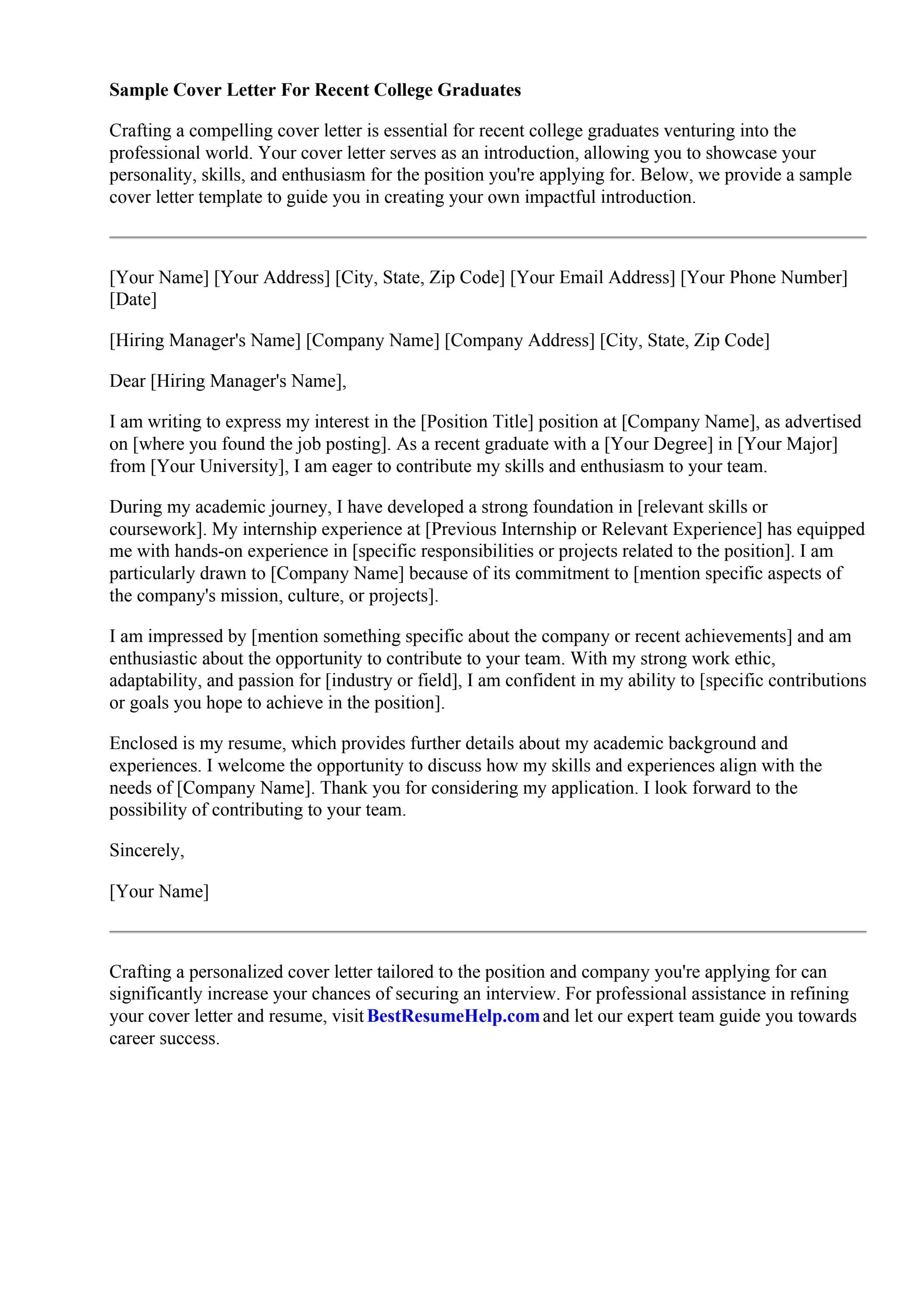As a recent graduate entering the job market, you might feel like your lack of professional experience is a significant hurdle. However, a well-crafted cover letter can be your secret weapon. This essential document allows you to showcase your potential, highlight your relevant skills, and convince employers that you’re the right fit for the job. This guide will walk you through the steps of creating a compelling cover letter that will help you land your first job.
Cover Letter Essentials
The cover letter is more than just a formality, it is a vital part of your job application. It provides a space to communicate your enthusiasm, explain your qualifications, and connect with the hiring manager on a more personal level. It also allows you to demonstrate your writing skills, which are critical in many professions. A strong cover letter complements your resume, offering a deeper dive into your qualifications and personality.
Understanding the Purpose of a Cover Letter
The primary purpose of a cover letter is to introduce yourself to the hiring manager and express your interest in the specific position. It’s your opportunity to make a positive first impression, highlight the key skills and experiences that align with the job requirements, and explain why you’re the ideal candidate. It also demonstrates your communication skills, attention to detail, and your understanding of the company and the role. It’s a chance to go beyond the bullet points of your resume and tell your story.
Key Components of a Cover Letter
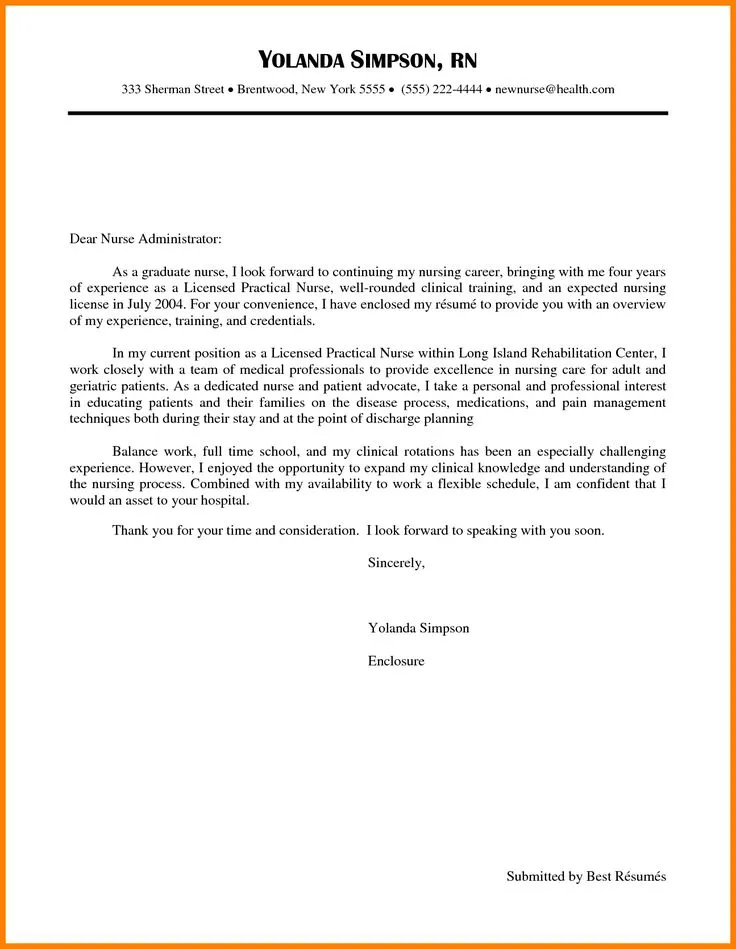
A well-structured cover letter typically includes several key components. Start with a professional heading that includes your contact information, the date, and the hiring manager’s name and title. Then, write a compelling opening paragraph that immediately grabs the reader’s attention and states the position you’re applying for. In the body of the letter, highlight your relevant skills and experiences, even if they come from academic projects, internships, or volunteer work. Close with a strong concluding paragraph that reiterates your interest and thanks the hiring manager for their time and consideration.
Formatting Your Cover Letter
Formatting matters. Your cover letter should be clean, easy to read, and free of errors. Use a professional font, such as Times New Roman, Arial, or Calibri, in a size between 10 and 12 points. Set your margins to one inch on all sides and use single-spaced lines with a blank line between paragraphs. Ensure your letter fits on one page, unless specifically requested otherwise. Proper formatting shows you pay attention to detail, which is crucial for all jobs. Using a template can help with this, but be sure to personalize it.
Highlighting Your Skills and Potential
Without extensive work experience, your cover letter should focus on your transferable skills, academic achievements, and potential. This means shifting your focus to what you can do and how your skills align with the job requirements. Focus on your coursework, projects, extracurricular activities, and any volunteer work you’ve done. Demonstrate your ability to learn quickly, solve problems, and work effectively, even if you haven’t done it in a professional setting. Show your enthusiasm and eagerness to contribute.
Showcasing Relevant Skills
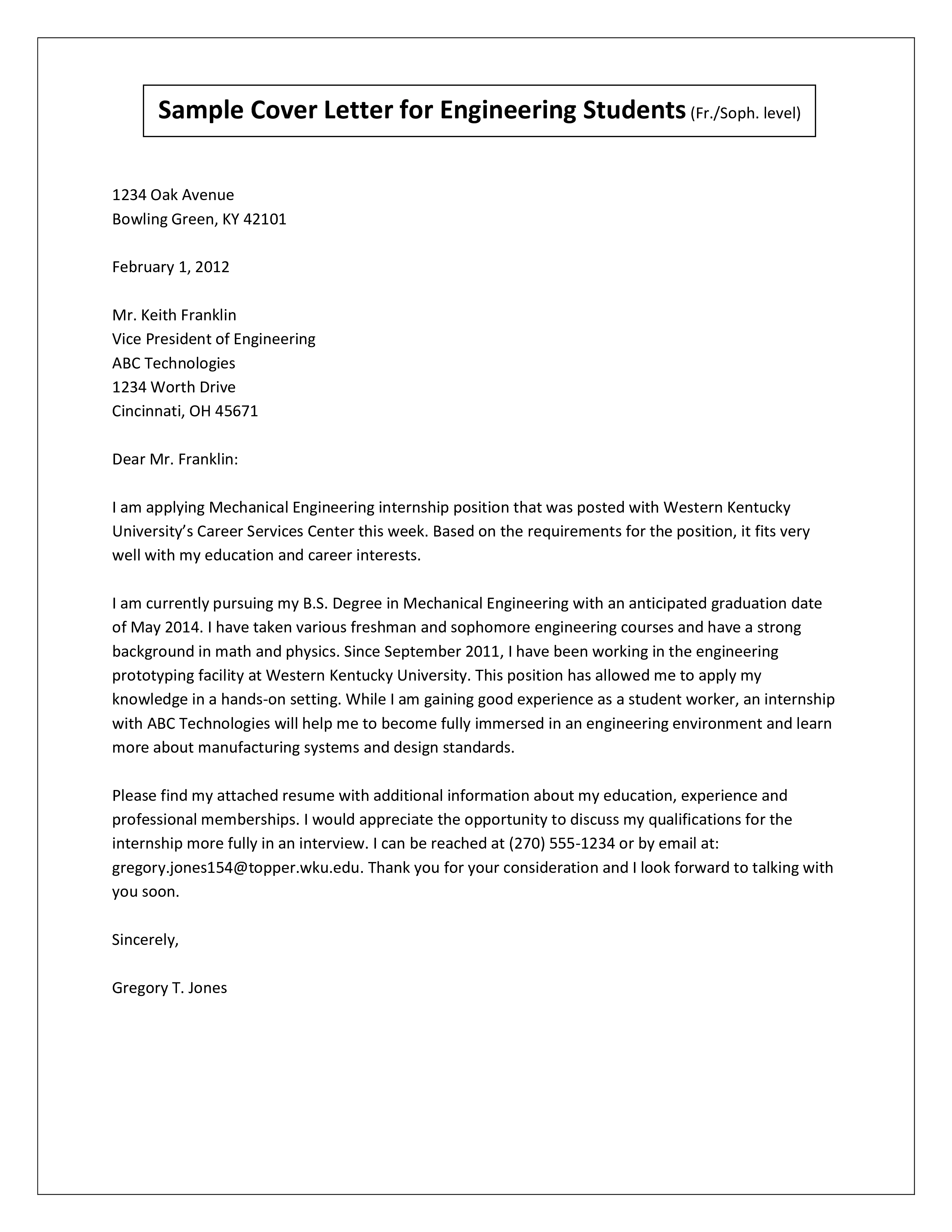
Identify the key skills that the employer is looking for in the job description and find examples to prove you have them. These can include soft skills like communication, teamwork, and problem-solving, as well as hard skills such as data analysis, programming, or specific software proficiencies. For each skill, provide a specific example from your academic or extracurricular experiences that demonstrates your ability. This helps the recruiter visualize your capabilities and understand how you’ll contribute to the team.
Addressing the Lack of Experience
It’s okay to acknowledge that you’re a recent graduate without extensive experience. Directly addressing it can be beneficial. You might state that while you are a recent graduate, you are eager to apply your skills and knowledge. Frame your lack of experience as an opportunity to learn and grow within the company. Avoid making it sound like a disadvantage; instead, emphasize your eagerness to learn and contribute.
Emphasizing Education and Projects
Your education is a great asset. Highlight relevant coursework, academic achievements, and any projects you completed during your studies. If you completed a thesis or capstone project, provide a brief overview and explain its relevance to the job you are applying for. Also, include any projects you completed, even if they were personal or part of your degree. If you have a portfolio, mention it to allow the hiring manager to see your work.
Tailoring Your Cover Letter
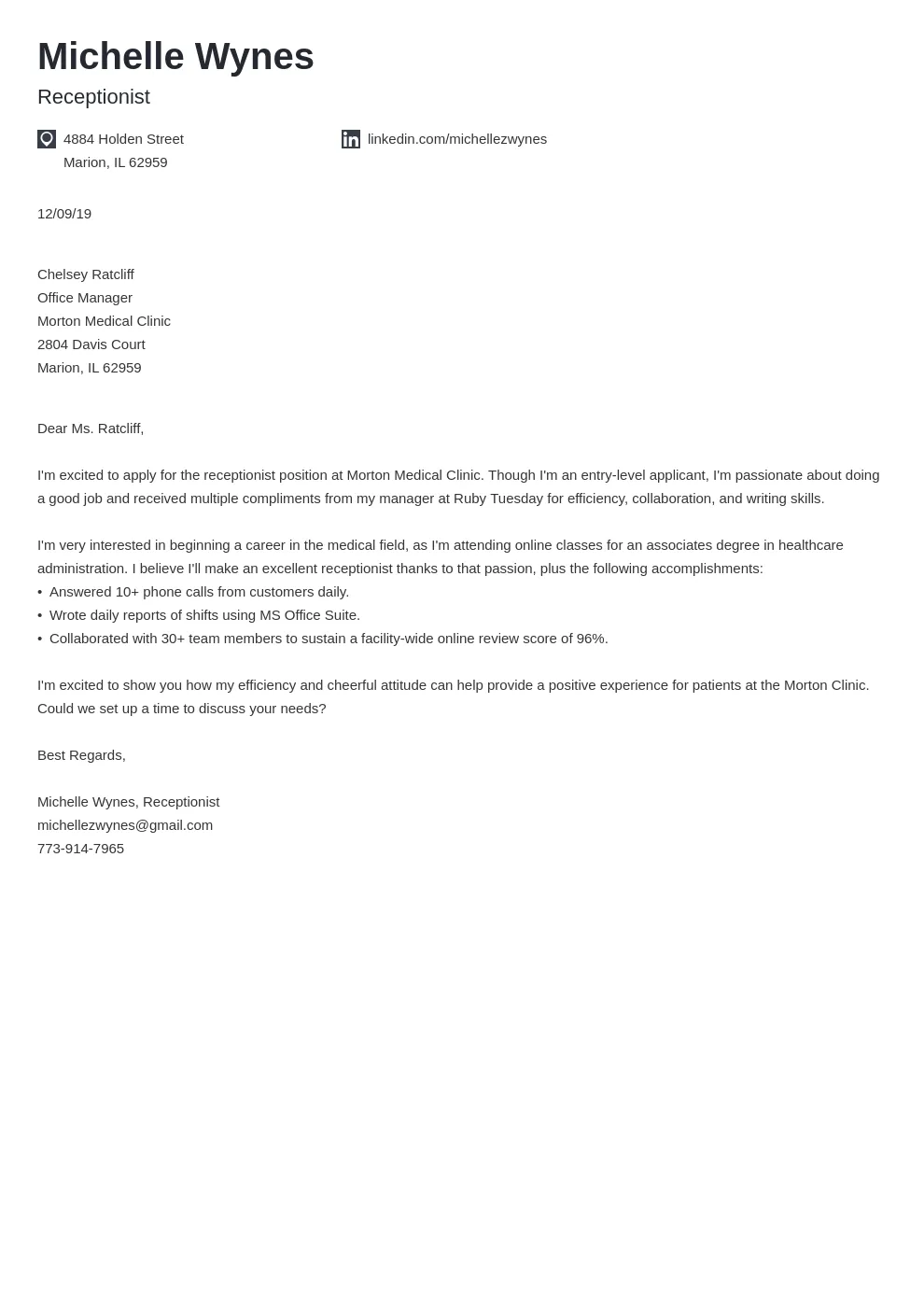
A generic cover letter is likely to end up in the trash. Take the time to tailor each cover letter to the specific job and company. This shows that you’ve taken the time to research the role and understand what the employer is looking for. Referencing the specific job description and incorporating keywords from it will help you get noticed by applicant tracking systems (ATS) and hiring managers alike. This will prove your level of interest in the role.
Researching the Company
Before you start writing, research the company. Visit their website, read their mission statement, and explore their social media profiles. Understand their values, culture, and recent news. This information will help you tailor your cover letter and show the hiring manager that you are genuinely interested in working for their organization. Mentioning something specific about the company shows your level of interest and that you’re not just sending a generic application.
Customizing to the Job Description
The job description is your roadmap. Carefully review each requirement and identify how your skills and experiences align with them. Use keywords from the job description throughout your cover letter to demonstrate that you are a good fit. Provide specific examples of how you have demonstrated these skills in the past. This targeted approach will increase your chances of getting your cover letter read and getting an interview.
Using Action Verbs
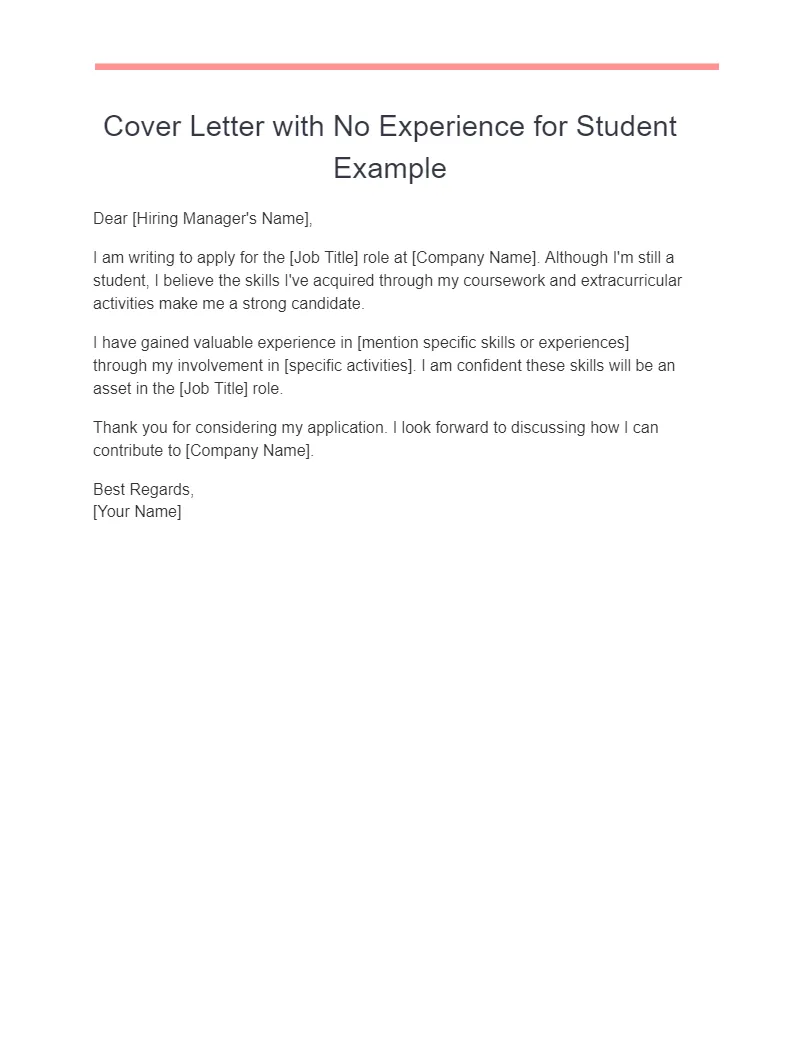
Use strong action verbs to describe your accomplishments and responsibilities. Words like “managed,” “developed,” “implemented,” “led,” and “achieved” make your cover letter more dynamic and engaging. Avoid passive language and focus on what you did and the results you achieved. This will help you paint a clear picture of your abilities and potential for the hiring manager. Action verbs can make your application more persuasive and results-oriented.
Proofreading and Submission
Proofreading is critical. Errors in grammar, spelling, or punctuation can undermine your credibility and make you appear unprofessional. After you finish writing your cover letter, take a break and then review it with fresh eyes. Read it aloud to catch any awkward phrasing or errors. Ask a friend, family member, or career counselor to proofread it as well. This extra set of eyes can help you catch mistakes you might have missed.
Checking for Errors
Go through your cover letter carefully, checking for common errors. Ensure that all names, dates, and contact information are correct. Verify that your grammar and spelling are flawless. Pay attention to your sentence structure and ensure that your writing is clear, concise, and easy to understand. Use a grammar checker like Grammarly and spellcheck before sending, but don’t rely solely on these tools.
Submitting Your Cover Letter
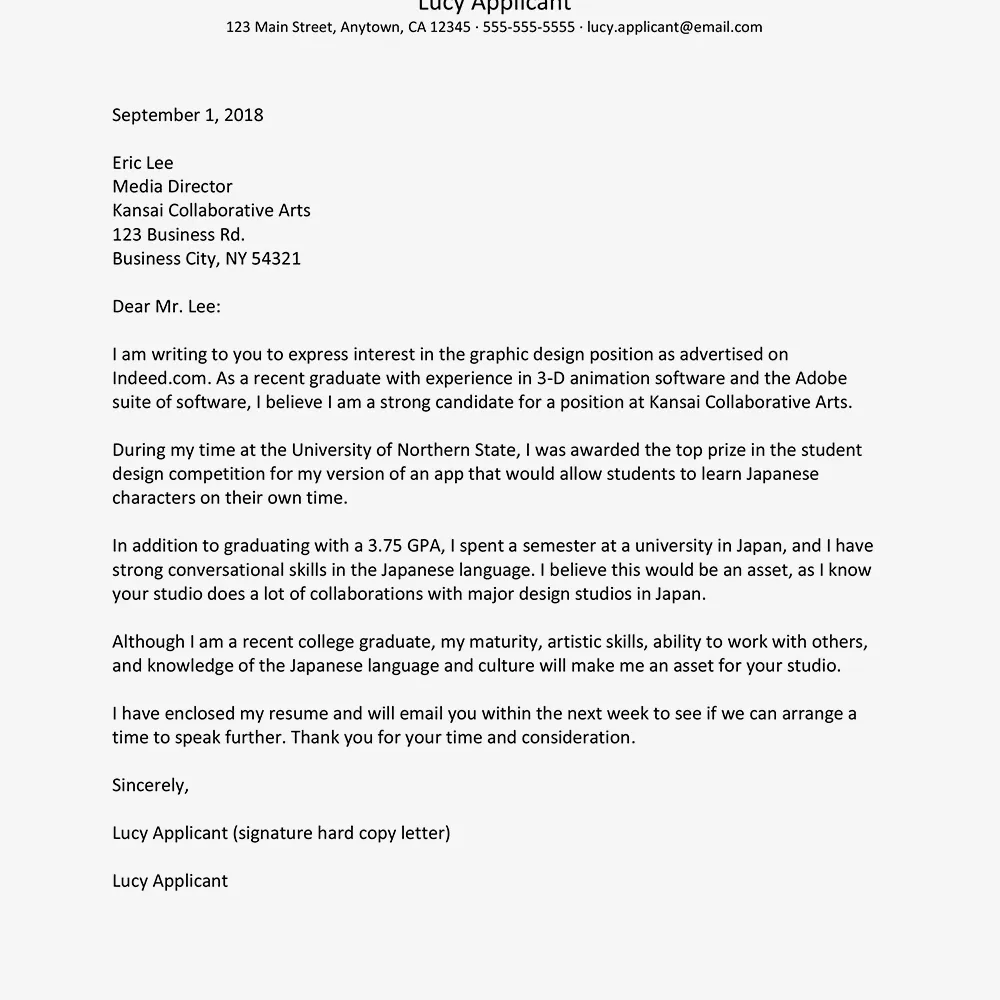
Follow the instructions provided in the job posting regarding how to submit your cover letter. If the posting requires you to submit it as an attachment, ensure the file name is professional (e.g., “Your Name_Cover Letter”). If submitting via email, use a clear and concise subject line. In the body of the email, include a brief note restating your interest and thanking the hiring manager for their time and consideration. Always save a copy of your cover letter for your records and future reference. Proofread the email before sending it.
Crafting a compelling cover letter as a recent graduate without experience requires careful planning and execution. By highlighting your transferable skills, emphasizing your education and projects, tailoring your letter to the specific job, and proofreading it meticulously, you can significantly increase your chances of landing your first job. Remember, your cover letter is your opportunity to shine and make a positive impression on potential employers. Good luck!
